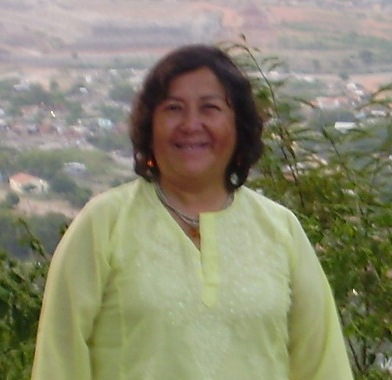|
Hinari - training the trainers |
 |
|
Written by Administrator
|
|
Tuesday, 18 May 2010 10:53 |
CEC 13HINARI - Training the trainers: promoting HINARI among international visitors from eligible countries
HINARI OVERVIEW
· Participants Introduction
· Pre-Test
· Objectives of Course
· Background
· Eligibility/Registration Process
· Do's and Don'ts
HINARI – The BASICS USING THE 'SHORT COURSE'
· Searching Skills
· HINARI/Partner Publishers' Websites
· HINARI/PubMed
· MY NCBI
· Practical Exercises
TRAINING MATERIALS OVERVIEW (CD)
· Short Course
· HINARI – The Basics Document
· Access Problems and Solutions PPT
· Printing, Copying, Saving... Problems and Solutions PPT
· Updating of Material
· Adopting Material for Local Environment
QUESTIONS & ANSWERS SESSION
· Overview of Teaching Environment
· Potential Groups for Workshops
· Logistics of Course
· Other Issues
FUNDING OPTIONS | Lenny Rhine, PhD is University Librarian Emeritus at the University of Florida, where he was Assistant Director, Collection Management Department of the Health Science Center Libraries, University of Florida from 1994 to 2005. He is at present the coordinator of the 2007-2009 Librarians Without Borders®/Medical Library Association/ ‘E-Library Training Initiative’ (funded by Elsevier). He has a wide experience as a consultant and instructor. Since 2007, he has been the instructor for 18 HINARI/Electronic Resources workshops in Vietnam, Nigeria, Nepal, Zanzibar, Tanzania, Cambodia, The Gambia, Burundi, Zambia, Mozambique (Association for Health Information and Libraries in Africa Congress), Fiji, Solomon Islands, Hawaii (MLA CE Course) and Brisbane, Australia (2 Courses at the International Congress of Medical Librarianship plus 2 HINARI training email courses. He continues to update and create new training modules. He has also developed a distance learning course based at the Pacific Open Learning Health Net; and been the instructor for 2 courses using this venue.
|  | Gaby Caro, Licenciatura in Librarianship and Information Science, is currently the HINARI Technical Officer at the World Health Organization, Switzerland. She is responsible for the HINARI HelpDesk, is involved in HINARI training activities around the world, and supports the development and update of the HINARI training materials. From 1994 to 2008 she was the Information & Documentation Technician at the PAHO/WHO Peru Country Office. During this period she participated in the Latin American and Caribbean System for Health Sciences Information created by BIREME, promoting at country level the LILACS (Latin American and Caribbean Literature on Health Science Information) Methodology, SciELO (Scientific Electronic Library Online), and the Virtual Health Library (VHL) and its components. She participated in the creation of the Peruvian Association of Scientific Editors (APECi) and was the Secretary from 2006 to 2008. She also participated in the Executive Council of the Peruvian Librarians Professional College (2005-2006) as Professional Development Director. She was also Member of the Permanent Commission of Libraries and Information Centers of the Peruvian Association of Medical Schools (ASPEFAM) from 2001 to 2008. Gaby has conducted a number of HINARI training courses, including most recently in Paraguay in April 2010. |
|
|
Strategic planning for health information libraries: a Quantum2 workshop |
 |
|
Written by Administrator
|
|
Wednesday, 12 May 2010 10:31 |
CEC11 Strategic planning for health information libraries: a Quantum2 workshop
This session offers techniques and a hands-on approach to evaluating the current strengths and weaknesses of your information services, aligned against the goals of your health institution. This interactive session helps participants to formulate innovative strategic alternatives for the future and to create an action plan to apply the appropriate resources and tactics. Strategic planning is a management process requiring ongoing assessment and review. In order to be successful it needs to involve all stakeholders of your institution: health librarians, managers, physicians, nurses and other health care professionals, all have a role to play. | |
Gabrielle Derriks was born in Africa and when she joined Dialog in 1997 she already had a long career in private education and the business world. After an MA in translation from the University of Mons - Belgium, she specialised in Applied Linguistics, Phonetics and Phonology. With a special certificate in the SGAV (structuro-global audio-visual) language methodology of the University of Zagreb, she designed and directed tailor-made language courses for most of the top Belgian companies. She pioneered the development of computer-assisted language courses for which she won a golden award.
Being a Training Specialist and speaking 4 languages Gabrielle Derriks has been in charge of various European territories and trained thousands of Dialog customers in a variety of fields covering science and technology , medical and pharmaceutical, intellectual property and business intelligence.
Since June 2003 she’s been an active Quantum2 coach holding life as well as remote sessions in the Germany, France, Holland and Belgium. Since 2007 she is also in charge of the promotion and the development of the Graduate Education Programs (GEP) for all countries outside North America under the leadership of Liz Blankson-Hemans. At weekends as a certified Tourist Guide, Gabrielle loves guiding visitors through the old streets of the medieval university town of Leuven (Louvain) in Belgium .
| | |
|
|
PICO workshop |
 |
|
Written by Administrator
|
|
Wednesday, 12 May 2010 10:25 |
CEC12PICO workshop
Searching for clinical questions, also known as ‘PICOs’ or ‘CATs’, isn’t easy, especially when evidence based medicine (EBM) demands of you that you retrieve the best currently available evidence. In this course we will show you a way of searching which enables you to perform a thorough search in a reasonable amount of time and with the most efficiency. This format includes a good search report and provides a good base for finding the right evidence for your customers. Key-elements in PICOs are: formulating a good clinical question, getting the background, searching systematically, selecting studies and critical appraisal of those studies. The searching part is the natural habitat of the librarian.
The learning goals of this CEC are:
- being able to use the PICO-format to formulate clinical questions and deriving search terms from it
- evolving your search skills, both in quality and in efficiency
- presenting the search process in a clear and objective way
- (pro-)actively working in a clinical setting
- strengthening your confidence
- sharing PICO-experiences with other information specia¬lists/cli¬nical librarians/medical librarians
- combining live presentations of PICOs with good theory about the background of the PICO and evidence based medicine.
This workshop will be highly interactive. At the end of this course you will have done several PICOs and you have picked up a lot of tips, tricks & expertise, which will make YOU the PICO-search-expert!

|
Biography
Hans Ket is a medical information specialist at the Medical Library of the VU University in Amsterdam. He is in this job for more than seven years now. Before that he had several library-related jobs and was also a nurse-in-training.
In the past years he's done hundreds of PICOs in cooperation with doctors from the Pediatric, Gynaecology/Obstetrics/Fertility, Internal Medicine and other departments. He does the searching together with the doctors. They provide the background and together they find the relevant terms and decide on the appropriate sources (PubMed, Embase, Google, guidelines, UpToDate, and others). By doing the search together he can take care of the efficiency and quality of the search. He also provides the doctors with a report of the search, containing the search terms, sources used, search history and retrieved items. This report is used in the presentation of the PICO to the staff to show that a thorough search has been done. Missed references can be explained and a reasonable amount of certainty is reached.
Marion and Hans are both also teachers of courses in expert searching in Pubmed for medical librarians. | | | | | | Marion Heijmans after qualifying in 1982, held a number of librarian positions in several institutions. Since 1991 she workis in medical libraries and currently as head of the medical library of Orbis Medical Centre, Sittard, The Netherlands. She is a member of the Continuing Education Committee of the national BioMedical Information group and participates in two studygroups: CCZ consortium (Central Catalogue for Hospital Libraries) and the Dutch NLM classification system.
As part of the continuing education programme for doctors at Orbis Medisch Centrum, the training from the medical library has become a permanent issue. It started with general trainings for the digital library. Next there was demand for training in literature research and we have developed Pubmed workshops. Until recently they offer PICO-courses, which are part of the education programme for Evidence Based Medicine. |
|
|
Library liaison programme |
 |
|
Written by Administrator
|
|
Friday, 07 May 2010 14:05 |
|
CEC 10
How to design and start a library liaison programme Medical Library Liaison programmes have evolved over the past 30 years, originating from medical reference librarians providing clinical information services through programmes recognized as clinical librarianship. With the proliferation of medical knowledge and burgeoning electronic publishing and access to information, librarians are moving steadily towards active partnerships with medical researchers and clinicians to provide efficient information services at points of care and in their research environments. This course will combine lecture and discussion elements with small group learning exercises to provide an overview and suggestions for the creation, planning and implementation of a medical library liaison programme. Based on the experience of the Welch Medical Library, the course instructor will cover programme definitions and design elements, a range of library and information services and where they may be performed, how many services may be offered and the extent to which they are given to patrons. The course will cover programme implementation, including elements of relationship-building between the patron/user group and the librarian/informationist and the performance of needs assessments to identify the information resources, products and services that patrons use and value. The course will also provide ideas for programme assessment and tracking program progress. | | Biography
Blair Anton is the Associate Director, Clinical Informationist Services, Welch Medical Library, Johns Hopkins Medical Institutions. She was clinical librarian at the same institution from 2006-2009. She has a Masters degree in addiction counselling (1990) and a Master of Library Science degree (2005). She has a wide professional experience in health care, both in managerial and teaching posts, and in medical librarianship. She is co-author of two peer-reviewed publications. |
|
|
|